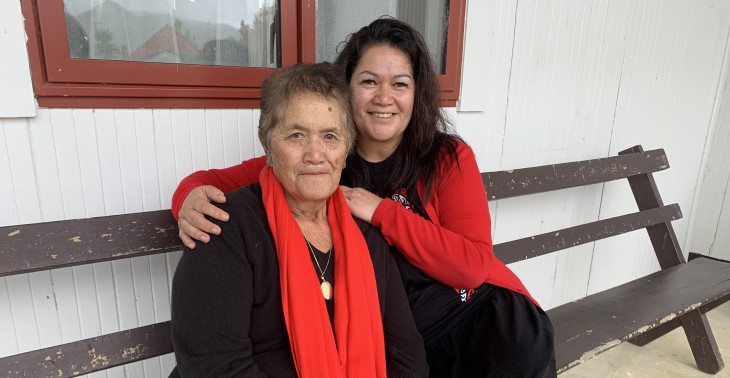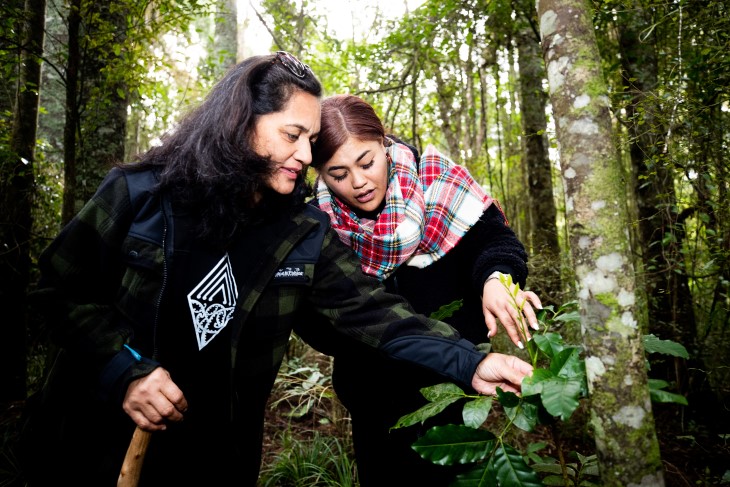Recovering from Cyclone Gabrielle with rongoā Māori
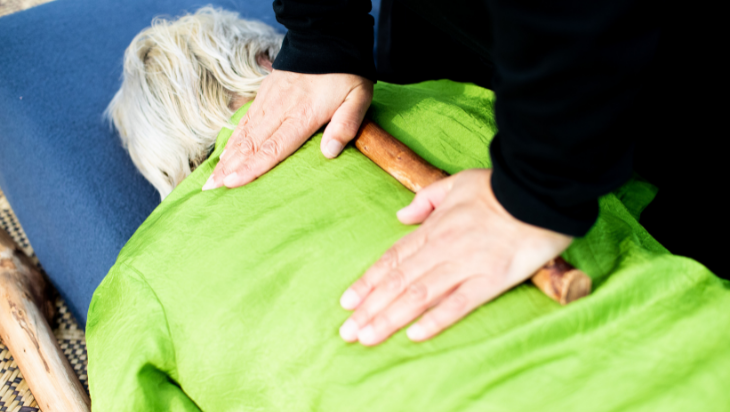
After the devastation caused by Cyclone Gabrielle last year, we recognised our kiritaki (clients) in impacted regions required additional support. So we provided funding to local community health providers.
Rongoā Māori practitioner Teena Te Maro remembers arriving in Gisborne following the devastation of Cyclone Gabrielle last year and feeling the mamae (pain) of the region.
The experienced practitioner from Ngāti Porou, who now lives in the Waikato, didn’t hesitate when she received a call to head over to the East Coast to support people in need.
Teena says there are still people hurting 12 months on from the natural disaster.
“When I came into Gisborne and flew over the East Coast, I could feel the mamae, and the tears flowed seeing the devastation of Gabrielle,” says Teena, from Manaaki Tangata Consultants.
“It’s hard to explain when you feel, see and hear the mamae of our tīpuna when something harmful is about to happen. Your tinana (body) and hinengaro (emotional wellbeing) feels numb with anxiety mixed with the heaviness of fear for our people, our maunga (mountain), our whenua (land), awa (river) and moana (sea).
“Your heart is heavy knowing whānau are hurting through loss, and not knowing how they’re going to recover,” she says.
“It’s almost like your heart has been ripped out and that pain stays with you.”
In all, 11 people died in Cyclone Gabrielle (with one person still missing). The total financial cost of the event was $14.5 billion. There were 2,016 ACC injury claims related to Cyclone Gabrielle.
Teena got straight into her work, offering free rongoā Māori sessions for people in need.
Rongoā Māori is traditional Māori healing. It includes mirimiri and romiromi (bodywork), whitiwhiti kōrero (support and advice) and karakia (prayer).
“The need was to go and help our people – it didn’t matter if they were on ACC or not,” she says.
“For me, it’s all about the people. It’s not about the money. It’s all about the health and wellbeing of our people, our whānau.”
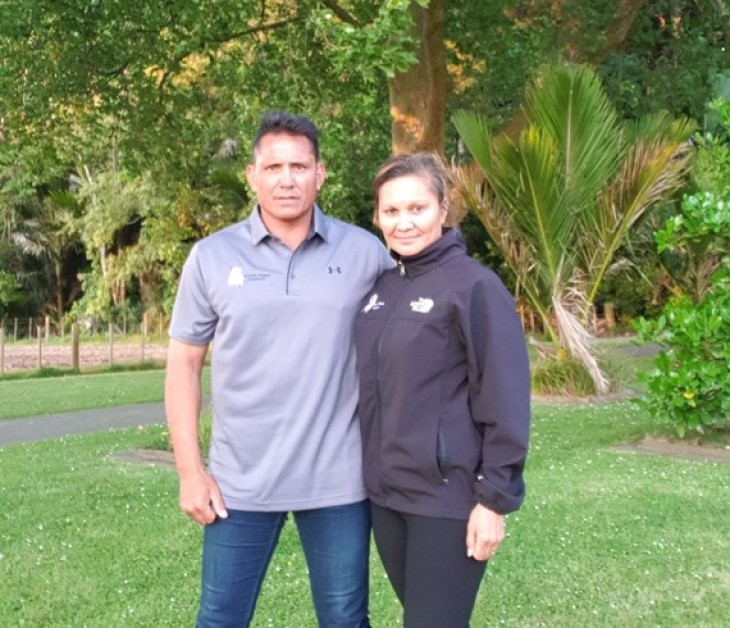
Zac and Teena Te Maro from Manaaki Tangata Consultants.
Providing easier access in time of need
At the same time, ACC recognised our kiritaki (clients) in Te Tai Tokerau (Northland), Te Tairāwhiti (Gisborne) and Te Matau-a-Māui (Hawke’s Bay) required support outside of primary care during their recovery and we wanted to make it easier for them to access this.
So we approved $60,000 as a one-off Regional Injury Prevention Grant. This was shared among five lead community health providers in the impacted rohe (regions) to help them continue with their outreach to whānau in their hapori (communities).
In Te Tairāwhiti, local providers Tūranga Health (in partnership with Te Whare Hauora o Te Aitanga a Hauiti) and Manaaki Tangata Consultants were supported by ACC to deliver this wellbeing initiative.
“We recognised the impact the cyclone had on hinengaro (emotional), wairua (spiritual), tinana (physical) and whānau wellbeing in these rohe,” says Eldon Paea, Head of Māori Health Partnerships for ACC.
“We saw the opportunity to support providers to deliver rongoā Māori in the community to ensure effective culturally aligned care was available to whānau that needed it.”
Whānau wanting to access support connected directly with the practitioners supporting their rohe.
Care was available to be delivered in-person or via Telehealth (for non-contact rongoā services) for those who may have been cut off from local facilities due to flooding.
“The fully-funded rongoā Māori sessions were available to all as a proactive wellbeing initiative – no injury or ACC claim was required to receive this care,” Eldon says.
Over 300 one-on-one mirimiri sessions were delivered to whānau, aged from rangatahi (14 to 20) to kaumātua (51 to 81 years).
Services were provided across Te Tairāwhiti, in Te Karaka, Ruatōria, Te Puia Springs Hospital and Tolaga Bay, while urban clinics were held in Tūranga at Te Whare Maire. Funding also helped practitioners to provide wellness packs for impacted whānau.
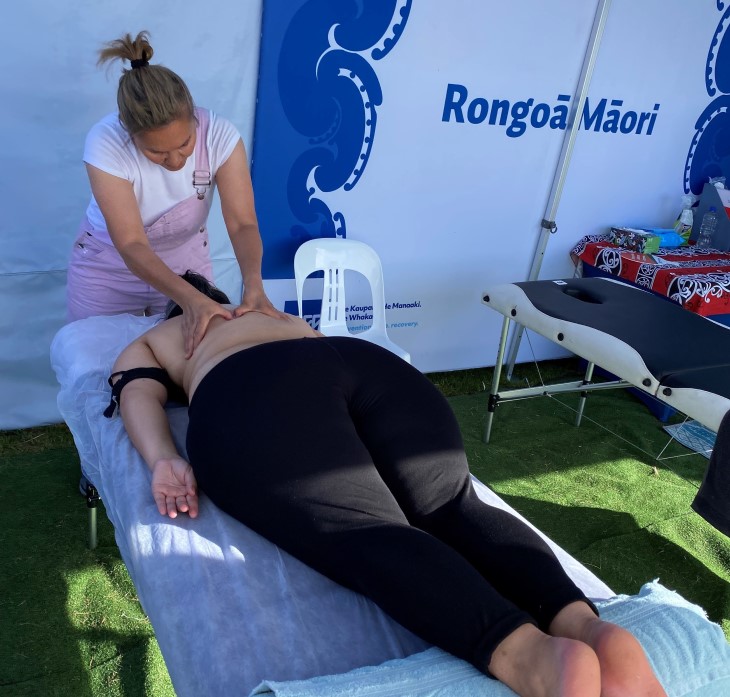
A huge boost to a hurting region
Teena says the support of ACC in funding rongoā treatments was a huge boost for the region.
“Everyone was coming out of the woodwork when they found out there was support for them,” she says. “Having a mirimiri and a chance to connect was really important for our whānau.”
She says it was hugely moving to see the impact of her work.
“There’s been a growth of men who continue to receive a mirimiri. It’s very hard for whānau to trust who they can kōrero (speak) with. Some would break down because they felt the need to stay strong in front of their whānau.
“You sense their pain and notice a tear fall when they lie on the mirimiri table in silence reflecting on how they maintain the strength for their whānau and hold it together. But many people continue to struggle in silence.”
Teena says the mental health struggles and trauma in the region are real.
“When you have an event like this, its impact is wide and deep,” she says.
“It has a big impact on the whānau and rongoā mirimiri heals not just the person by finding the cause of their mamae, it’s healing for their whānau.”
Teena says ACC offering rongoā Māori as a healing option since June 2020 has been a huge step forward.
“I’m so grateful to ACC for reviving our taonga as a choice of service to ACC kiritaki, after so many years where it was driven underground,” she says.
“Thanks to ACC, it’s great to give our people access to funded mirimiri. And people are responding to it and accepting of it. It’s not just for Māori, it’s for everyone.”
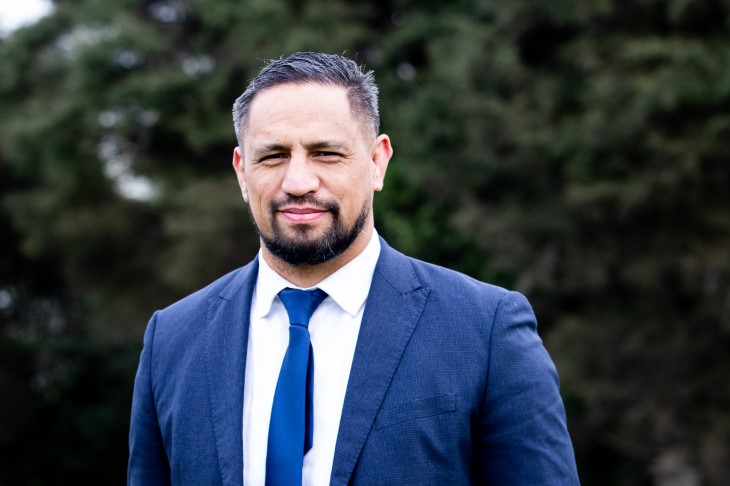
Eldon Paea, ACC Head of Māori Health Partnerships.
Equity through a service for everyone
ACC research shows Māori are more likely to sustain a serious injury than non-Māori, but less likely to make an injury claim.
Māori clients generally account for 12.5 per cent of new claims volumes annually but account for 16.7 per cent of the population.
ACC data shows rongoā Māori claim volumes almost doubled in the 12 months to January 2024, with 6,016 claims using rongoā.
And it’s not just Māori who are accessing rongoā Māori services – 59 per cent of kiritaki (clients) accessing rongoā Māori are Māori while 41 per cent are non-Māori.
“Offering rongoā as a rehabilitation service is part of our continuing efforts to deliver equity for Māori,” Eldon says.
“It presents injured Māori, and all New Zealanders, with more choice in their recovery options, and is a positive step towards delivering equity for tangata whenua.”
As part of its commitment to growing access to and awareness of rongoā Māori across the health sector, ACC is also supporting the inaugural Rongoā Māori Conference in Rotorua in May.
“We want to bring together our health providers and rongoā practitioners to see how we can work together to meet all the needs of our communities,” Eldon says.
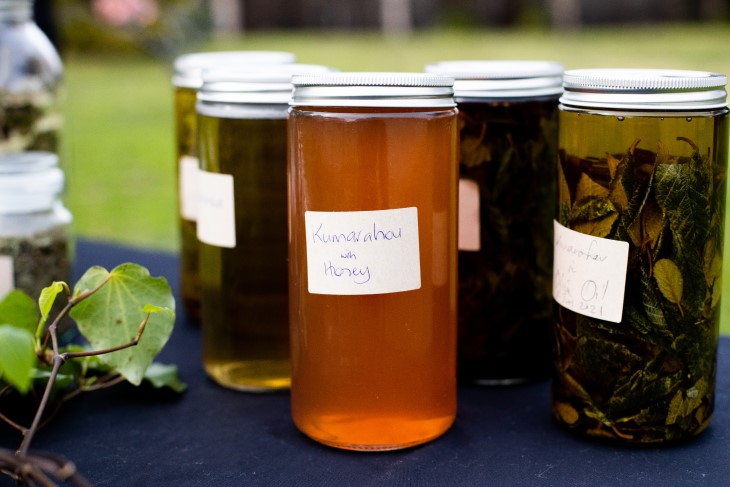
More information
More information on the inaugural Rongoā Māori Conference is available on the conference website.




